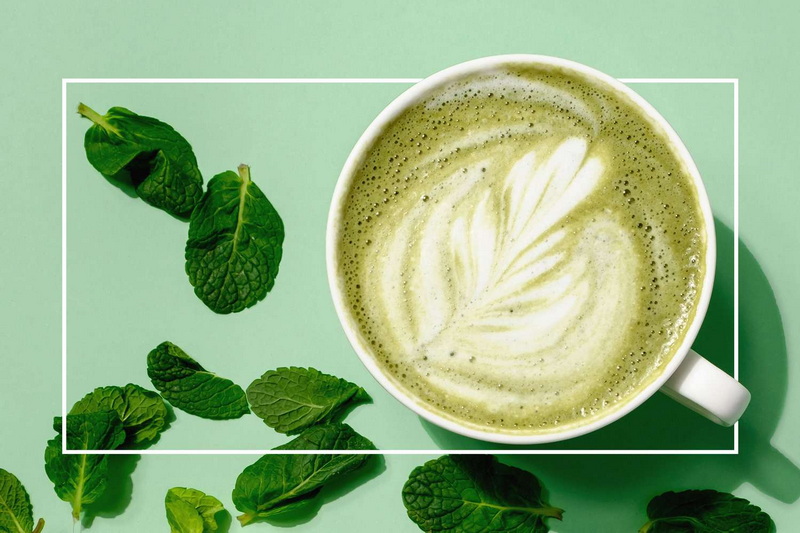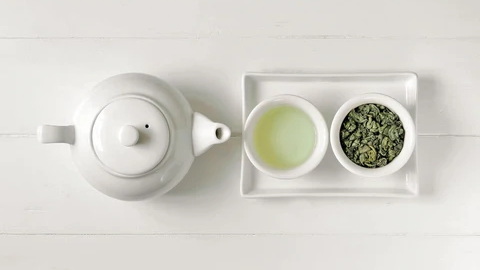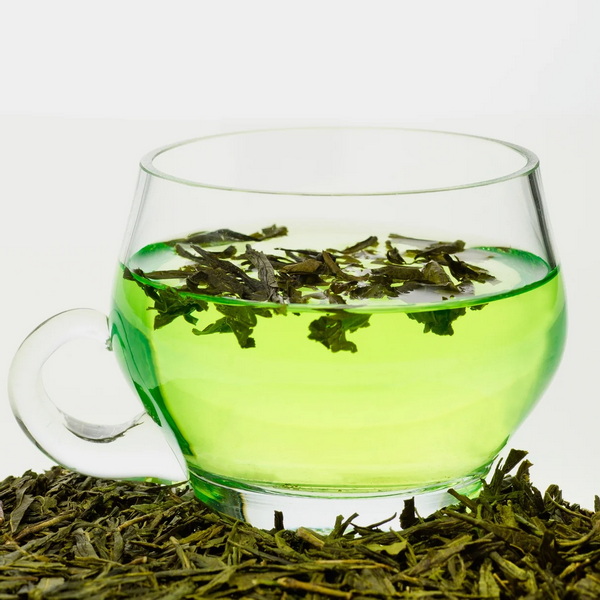Content Menu
● Understanding Green Tea and Its Extract
>> Key Components of Green Tea
● How Much Green Tea Extract Is Present?
>> Typical Concentrations
● Health Benefits of Green Tea Extract
● Factors Influencing Green Tea Extract Concentration
● Comparative Analysis: Green Tea vs. Green Tea Extract
● How to Incorporate Green Tea Extract into Your Diet
● Potential Side Effects and Considerations
● Conclusion
● FAQ
>> 1. What is the recommended daily intake of green tea extract?
>> 2. Can I drink too much green tea?
>> 3. Is there a difference between matcha and regular green tea?
>> 4. Can I take green tea extract with other supplements?
>> 5. What are the side effects of taking green tea extract?
● Citations:
Green tea has long been celebrated for its numerous health benefits, largely attributed to its rich content of antioxidants and other bioactive compounds. Among these compounds, green tea extract (GTE) is particularly notable, as it provides a concentrated source of the beneficial components found in green tea. This article delves into the specifics of how much green tea extract is present in green tea, its health benefits, and how it compares to other forms of consumption.

Understanding Green Tea and Its Extract
Green tea is derived from the leaves of the Camellia sinensis plant, which also produces black and oolong teas. The primary difference between these teas lies in their processing methods. Green tea is minimally processed, which helps retain its high levels of polyphenols, particularly catechins, which are powerful antioxidants.
Key Components of Green Tea
- Catechins: The most abundant catechins in green tea include:
- Epigallocatechin gallate (EGCG)
- Epicatechin (EC)
- Epicatechin gallate (ECG)
- Epigallocatechin (EGC)
- Caffeine: A typical cup of green tea contains about 30-50 mg of caffeine.
- Theanine: An amino acid that contributes to the calming effects of green tea.
How Much Green Tea Extract Is Present?
The concentration of green tea extract can vary significantly based on several factors, including the type of green tea, preparation method, and serving size.
Typical Concentrations
- Brewed Green Tea: A standard cup (240 ml) typically contains:
- Catechins: Approximately 50-100 mg
- EGCG: Ranges from 30-50 mg
- Green Tea Extract Supplements: These are often standardized to contain higher concentrations of catechins, particularly EGCG. A common dosage for supplements is between 250 mg to 500 mg per day, which can provide up to:
- EGCG: Approximately 100-300 mg depending on the product's formulation.
Health Benefits of Green Tea Extract
The health benefits associated with green tea extract are numerous and well-documented:
1. Antioxidant Properties: The catechins in GTE are potent antioxidants that help combat oxidative stress and may reduce the risk of chronic diseases.
2. Weight Management: Research suggests that GTE can aid in weight loss by enhancing metabolic rates and fat oxidation.
3. Heart Health: Regular consumption of green tea has been linked to improved cholesterol levels and reduced blood pressure.
4. Brain Health: The neuroprotective effects of EGCG may help protect against neurodegenerative diseases such as Alzheimer's and Parkinson's.
5. Skin Health: GTE is often included in skincare products due to its anti-inflammatory properties and ability to improve skin elasticity.
6. Diabetes Management: Some studies indicate that GTE may improve insulin sensitivity and help regulate blood sugar levels, making it beneficial for individuals with type 2 diabetes.
7. Cancer Prevention: Research suggests that the antioxidants in green tea may inhibit cancer cell growth and reduce the risk of certain types of cancer, including breast and prostate cancer.
8. Digestive Health: Green tea may promote a healthy gut microbiome by supporting beneficial bacteria while inhibiting harmful bacteria.

Factors Influencing Green Tea Extract Concentration
Several factors can affect the concentration of catechins in both brewed green tea and extracts:
- Type of Green Tea: Different varieties (e.g., matcha vs. sencha) have varying levels of catechins. Matcha, being powdered whole leaves, typically has higher concentrations compared to brewed teas.
- Preparation Method: Brewing time, temperature, and leaf quality all influence catechin extraction. For instance, steeping for longer periods or using hotter water can increase catechin release but may also lead to bitterness if overdone.
- Environmental Conditions: Factors such as soil quality and climate can affect the chemical composition of the tea leaves. For example, teas grown in cooler climates may have higher antioxidant levels due to slower growth rates.
Comparative Analysis: Green Tea vs. Green Tea Extract
| Aspect | Green Tea | Green Tea Extract |
| Form | Brewed beverage | Capsules or powder |
| Catechin Content | 50-100 mg per cup | 250-500 mg per serving |
| EGCG Content | 30-50 mg per cup | Up to 300 mg per serving |
| Antioxidant Activity | Moderate | High |
| Caffeine Content | Moderate (30-50 mg) | Variable (often lower) |
| Usage | Beverage | Supplement |
How to Incorporate Green Tea Extract into Your Diet
Incorporating green tea extract into your daily routine can be beneficial for health:
1. As a Beverage: Enjoy brewed green tea regularly, aiming for three to five cups per day for optimal benefits.
2. Supplements: Consider taking standardized green tea extract supplements if you seek concentrated benefits; consult a healthcare provider for appropriate dosages.
3. In Cooking: Use powdered forms like matcha in smoothies or baking recipes to add flavor and health benefits.
4. In Skincare: Look for skincare products containing GTE or make DIY masks using matcha powder for its anti-inflammatory properties.
5. As a Flavoring Agent: Incorporate GTE into sauces or dressings for added health benefits without altering flavor significantly.
Potential Side Effects and Considerations
While green tea extract is generally safe for most people when consumed in moderation, there are potential side effects and considerations:
- Caffeine Sensitivity: Individuals sensitive to caffeine may experience jitteriness or insomnia with high doses of GTE or excessive consumption of brewed green tea.
- Stomach Irritation: Some people may experience stomach upset or nausea when taking concentrated extracts on an empty stomach; it's advisable to take them with food.
- Medication Interactions: GTE can interact with certain medications, including blood thinners and medications for high blood pressure; always consult a healthcare professional before starting any new supplement regimen.
Conclusion
Green tea extract serves as a concentrated source of the beneficial compounds found in regular green tea, offering enhanced antioxidant properties and various health benefits. Understanding how much extract is present in different forms allows consumers to make informed choices about their intake for optimal health outcomes. With its myriad health benefits ranging from weight management to cancer prevention, incorporating green tea or its extracts into your diet can be a simple yet effective way to enhance overall wellness.

FAQ
1. What is the recommended daily intake of green tea extract?
The recommended daily intake ranges from 250 mg to 500 mg, depending on individual health goals and product formulations.
2. Can I drink too much green tea?
While moderate consumption (3-5 cups per day) is generally safe, excessive intake can lead to side effects such as nausea or liver damage due to high catechin levels.
3. Is there a difference between matcha and regular green tea?
Yes, matcha is a powdered form made from shade-grown leaves that contain higher concentrations of catechins compared to regular brewed green tea.
4. Can I take green tea extract with other supplements?
It's advisable to consult with a healthcare professional before combining supplements, as interactions may occur.
5. What are the side effects of taking green tea extract?
Potential side effects include nausea, liver toxicity at high doses, and interactions with certain medications; moderation is key.
Citations:
[1] https://www.urmc.rochester.edu/encyclopedia/content?contenttypeid=19&contentid=greenteaextract
[2] https://pmc.ncbi.nlm.nih.gov/articles/PMC9495874/
[3] https://www.healthline.com/nutrition/how-much-green-tea-per-day
[4] https://www.alamy.com/stock-photo/green-tea-extract.html
[5] https://www.youtube.com/watch?v=fkASB21-xrQ
[6] https://www.healthline.com/nutrition/10-benefits-of-green-tea-extract
[7] https://www.nature.com/articles/srep19710
[8] https://www.maxxperformance.com/stories/expert-advice/how-much-egcg-is-being-delivered-in-your-tasteless-green-tea-extract-and-will-it-survive-baking/
[9] https://www.shutterstock.com/search/green-tea-extract
[10] https://www.youtube.com/watch?v=A7tjlpYdUGU
[11] https://examine.com/supplements/green-tea-extract/
[12] https://www.youtube.com/watch?v=eMuE16vLV_s
[13] https://pmc.ncbi.nlm.nih.gov/articles/PMC6271668/
[14] https://www.researchgate.net/publication/262473749_Quantification_of_catechins_and_caffeine_from_green_tea_Camellia_sinensis_infusions_extract_and_ready-to-drink_beverages
[15] https://consensus.app/questions/much-green-take-daily/
[16] https://www.bodybuilding.com/content/everything-you-need-to-know-about-green-tea-extract.html
[17] https://www.canada.ca/en/health-canada/services/food-nutrition/public-involvement-partnerships/notice-modification-list-permitted-supplemental-ingredients-permit-use-green-tea-extract-supplemental-ingredient-foods/document.html
[18] https://www.ncbi.nlm.nih.gov/books/NBK299060/
[19] https://www.istockphoto.com/de/bot-wall?returnUrl=%2Fde%2Fphotos%2Fgreen-tea-extract
[20] https://www.webmd.com/vitamins/ai/ingredientmono-960/green-tea
[21] https://www.vecteezy.com/free-videos/green-tea-extract






























